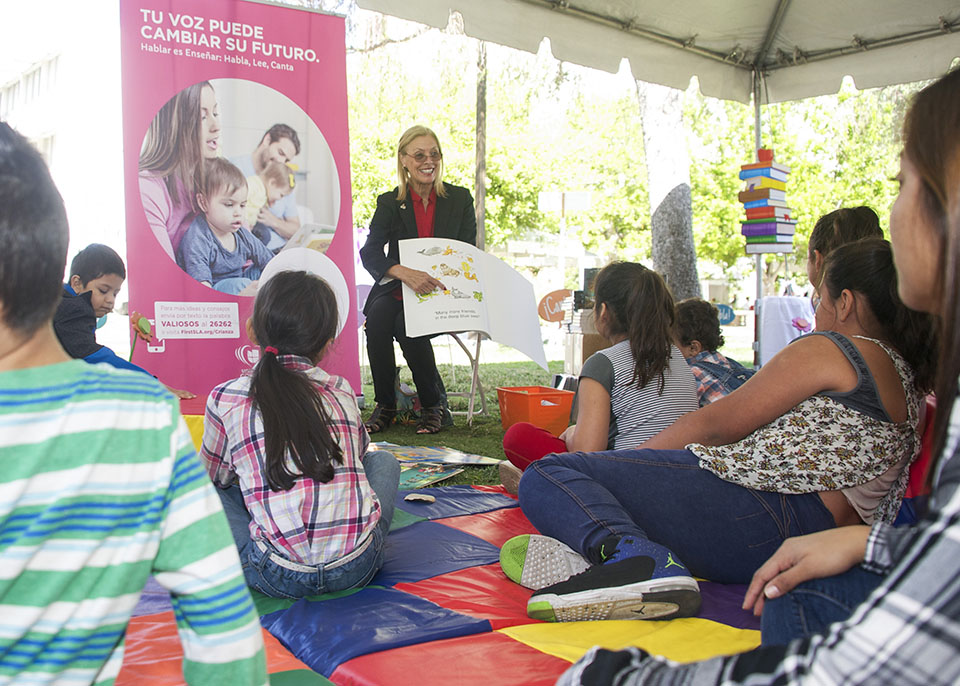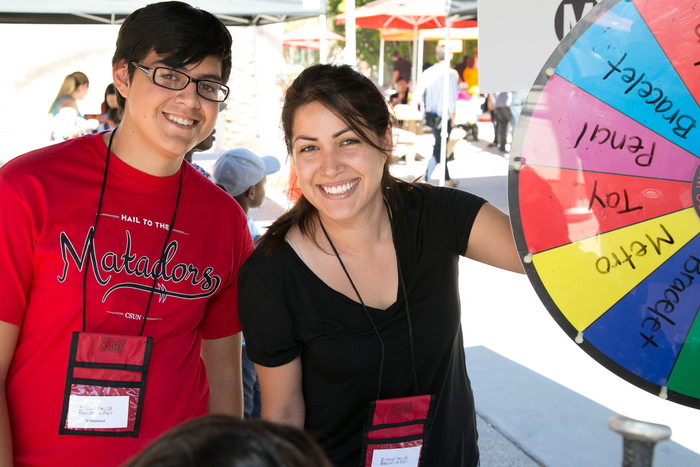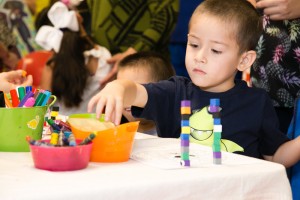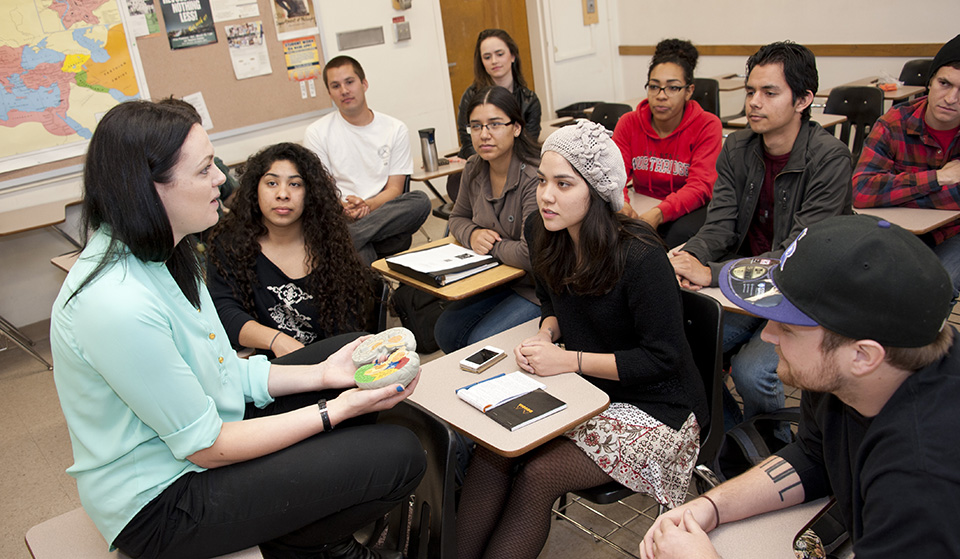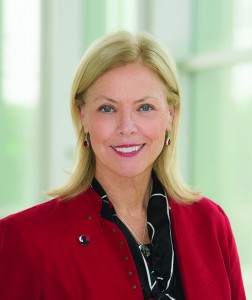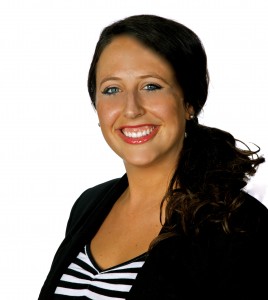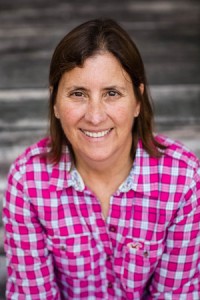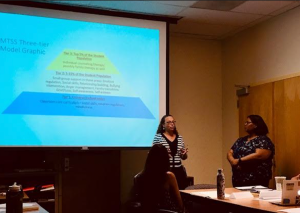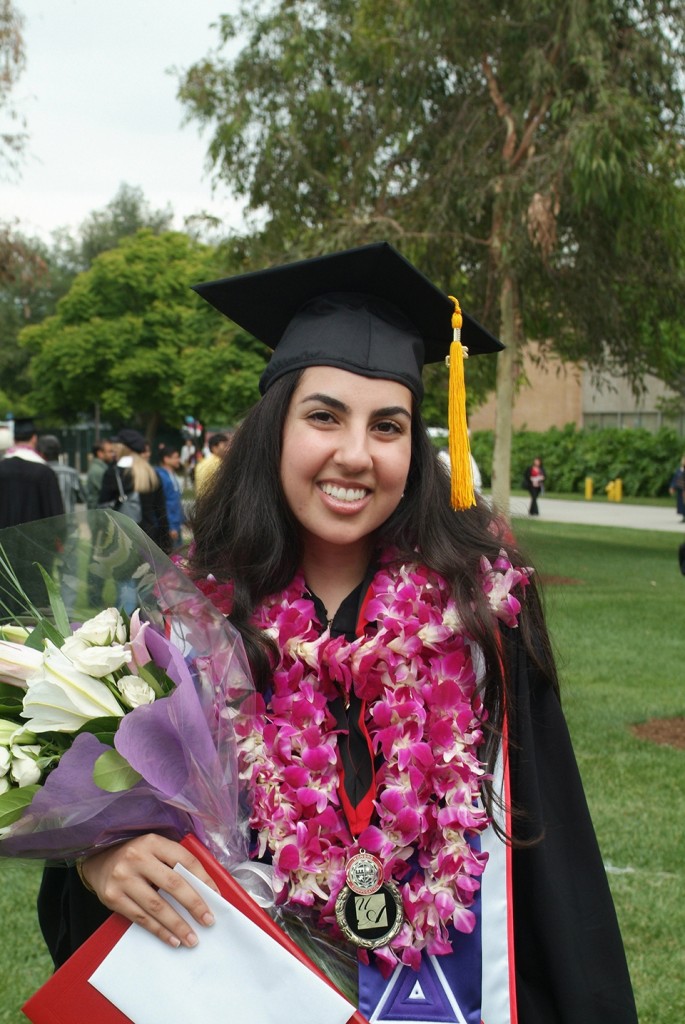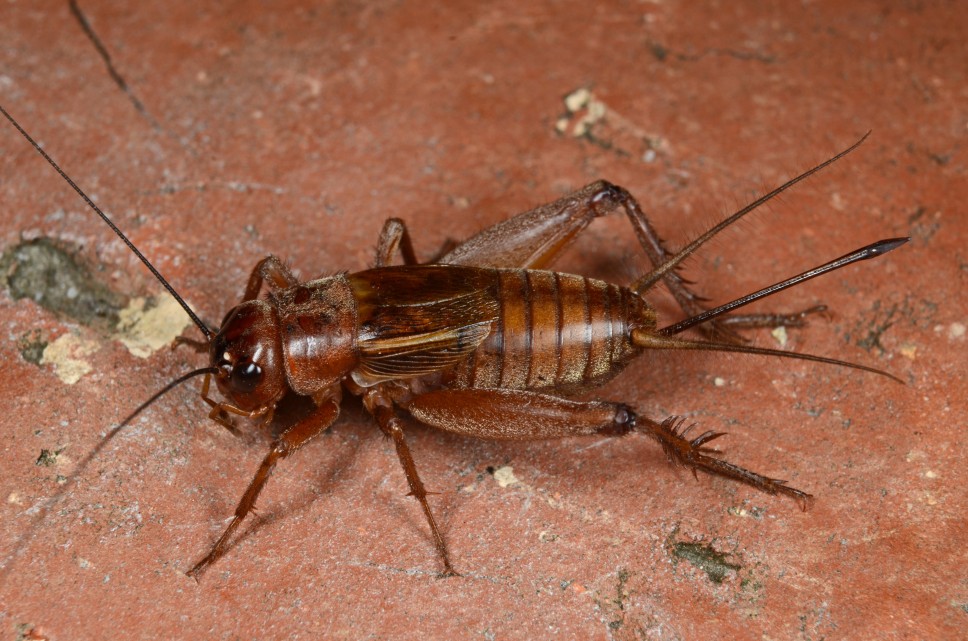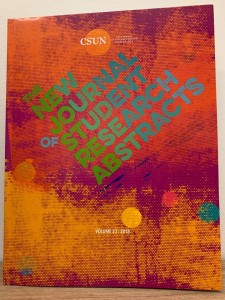Hundreds of California State University, Northridge accounting, business, entrepreneurship and marketing students packed the university’s Younes and Soraya Nazarian Center for the Performing Arts on Nov. 13 for Workforce of the Future, a partnership program between CSUN’s David Nazarian College of Business and Economics, IBM, and global accounting and audit firm KPMG.
It wasn’t the generous spread of hors d’oeuvres from the Orange Grove Bistro that drew the crowd of undergraduates, their professors and alumni — although that didn’t hurt. They filled The Soraya’s lobby before and after the program, thronging around Canepa and the young, dynamic panelists from IBM and KPMG who joined him. They turned in stacks of question cards for the panelists to answer, touching on issues of artificial intelligence (AI), accounting technology, entrepreneurship and the skills that today’s CSUN students must master to succeed in their future careers.
“We hope today’s program will be the first in a series of programs on the workforce of the future,” said Chandra Subramaniam, dean of the Nazarian College. “These rapid advances present real challenges to colleges and universities. How do we balance a deliberative and structured process in the face of immediate transformation of entire industries? There are no easy answers or solutions, but we can start by working on our culture.
“While we consider our curriculum, let me suggest just three values that we must instill in our students with some urgency: intellectual curiosity, flexibility and adaptability, and intellectual courage — so that we’re not only becoming consumers of that technology, but can become an integral part of changing the business world,” he added. “Programs like today’s can help us to foment that change.”
Subramaniam noted that the college partnered with KPMG and IBM because of their size, reputation and global reach, as two of the most widely respected firms across the globe. The companies’ expertise in “big data,” AI, blockchain, machine learning, process robotics and the “internet of things” are just a few of the topics that CSUN hopes these corporate partners and experts will share with the university’s undergraduates, graduate students and faculty in the years to come, the dean said.
“These are exciting times for the Nazarian College,” he said. “Energy, innovation and a sense of mission and purpose drives our college. We have more than 7,000 students, which makes us the second-largest college of business in California, and the ninth-largest in the U.S. The high quality of the program is well known in Southern California, given that CSUN’s business alumni are disproportionately represented at the partner level in public accounting and at the CFO level in the industry.
“Our students also understand what it is to give back,” he said, and the audience cheered. “This tax season, our students volunteered more than 20,000 hours to help more than 7,500 low-income individuals through CSUN’s Volunteer Income Tax Assistance (VITA) program, creating a significant economic impact in our region. CSUN is the largest academic institution-based VITA program in California, and the second-largest in the nation.”
Canepa, IBM’s general manager for global media and the entertainment industry, talked about the applications and societal implications of IBM’s Watson, a massive AI engine that became a household name across the nation when it beat two human contestants on the TV game show Jeopardy! on Feb. 14, 2011.
“For the IBM brand, that was a pretty big moment. Watson had gotten so much better at playing [Jeopardy!],” Canepa said. “We knew there was a good chance that Watson would win.
“So why do we need AI?” he continued. “There are some fundamental things that are shifting in the way competition happens in the marketplace. Firms are trying to stand out from the competition. [As consumers], we expect companies to make offers to us that are relevant to what we want.
“Ten thousand baby boomers retire every day in the U.S., and every time one of them retires, they take with them the cumulative learning they’ve had from their whole career,” he said. “That’s a huge drain on your intellectual capital and your business. So, how do we protect that, so business continues to move forward and not move backwards?”
Canepa also touched on the massive growth of data in accounting and business, including in media and the entertainment industry: 1.7 megabytes (MB) of new data is created every second, for every human on the planet, according to Canepa. Video files are a huge share of that total data, he said, thanks to the growth in popularity and supply of videos for education, surveillance, government and medical services, to name just a few.
“When we talk about the workforce of the future, in my view, it’s becoming clear that continuous improvement is going to be one of the cornerstones, and a passion for learning is going to be critical,” Canepa told the audience. “I see a new class of worker emerging — using AI to optimize inventory, product mix, etcetera, to work in conjunction with the workers.”
He followed his talk with a panel discussion with five leaders from IBM and KPMG, which has worked with IBM on Watson for years.
“We partner with a lot of schools and universities; however, this Workforce of the Future series we are doing with CSUN is unique in North America,” said Utpal Mangla of IBM. “For AI, in business, you need humans to make those final decisions. It’s not that the workforce is reducing, but the workforce needs to be ‘re-skilled’” to take advantage of these tools, he said.
His fellow panelist, Bindiya Khurana from KPMG, addressed a student’s question about which aspects of accounting she believed could become obsolete in the near future.
“On the audit side, our staff was primarily focused on [analyzing] data,” she said. “Now with the help of AI, our staff is more focused on exceptions [in] compliance. As an auditor, we’re doing a more efficient audit. The quality of the audit we’re doing has improved tremendously, with help from AI. The work I do now versus the work I did 17 years ago has changed, and it is very exciting.”

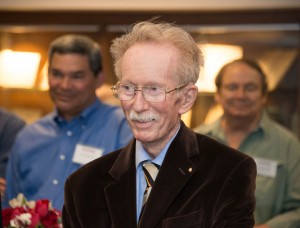
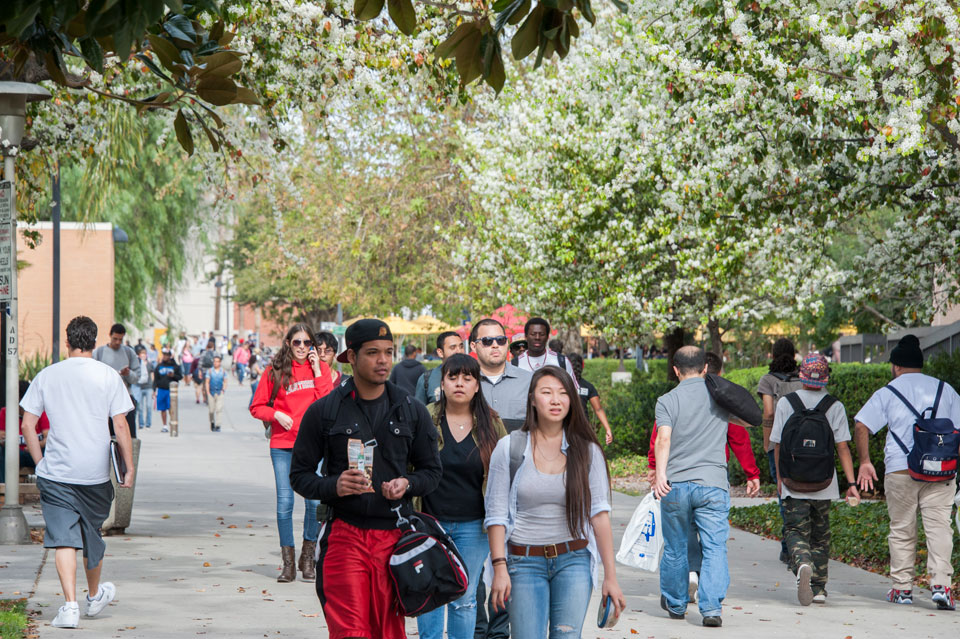

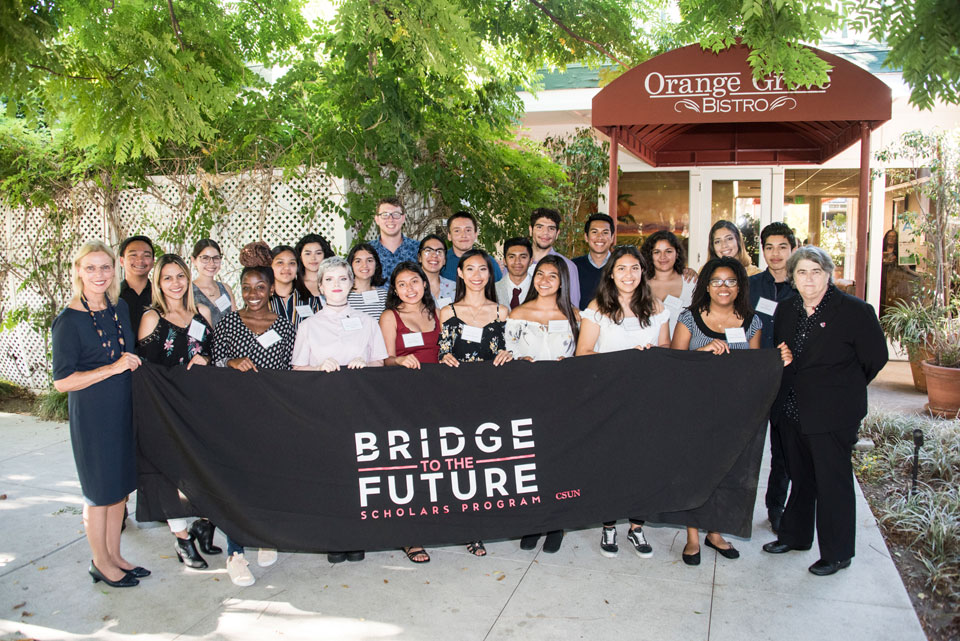
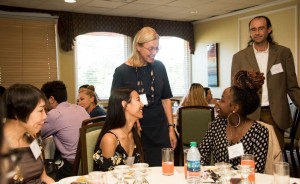
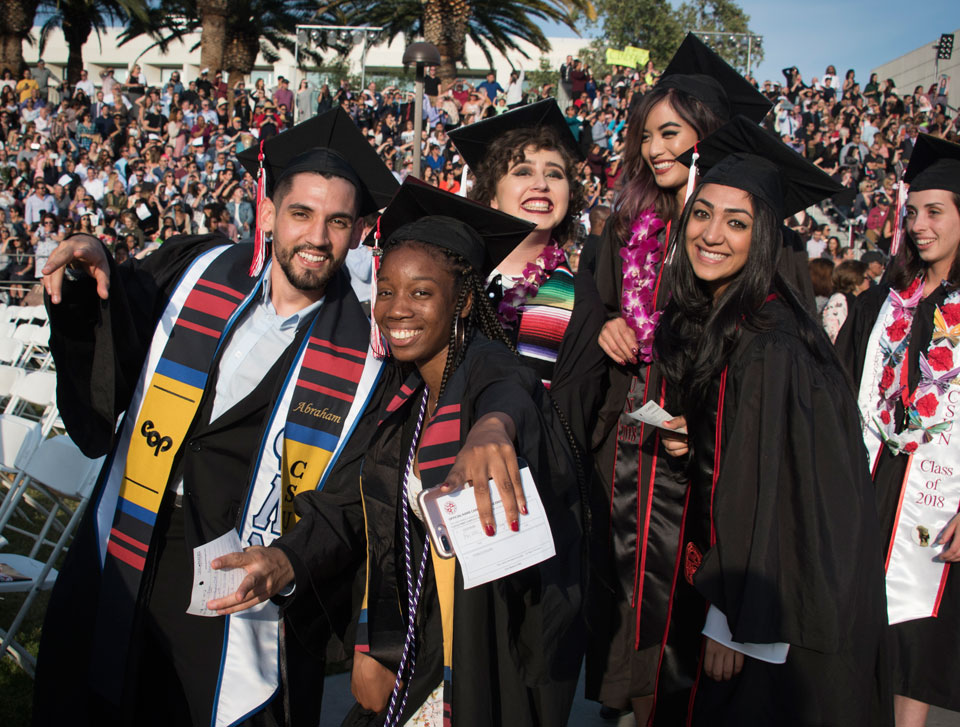

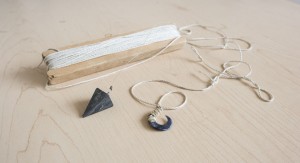

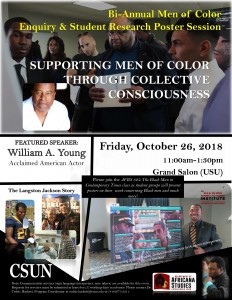 California State University, Northridge students will explore the collective consciousness of men of color at CSUN’s biannual Men of Color Enquiry and Student Research Poster Session on Friday, Oct. 26.
California State University, Northridge students will explore the collective consciousness of men of color at CSUN’s biannual Men of Color Enquiry and Student Research Poster Session on Friday, Oct. 26.